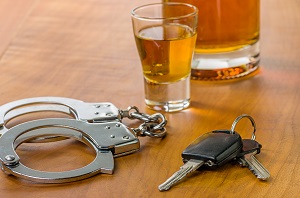Drugged driving is a serious problem in Texas, where it is illegal to operate a motor vehicle while under the influence of drugs. Each year, hundreds of Texans are arrested for DUI due to impaired driving caused by drugs or alcohol.
Understanding the laws surrounding drugged driving can help you avoid becoming one of these statistics and ensure that you stay safe on the roads.
The Texas Law When Driving Under Drugs Influence
In Texas, any individual who is caught driving a vehicle and influenced by alcohol or drugs can face varying degrees of criminal penalties and fines. According to Title 10 of the Texas Penal Code, Chapter 49, these penalties can range from license suspension, hefty fines, and surcharges, community service hours, or even potential jail time for more serious violations.
For those found guilty of such offenses in Texas, it is important to be aware that there is no distinction between driving while impaired due to drugs versus alcohol — both are considered equally illegal and punishable by law.
Furthermore, unlawful intoxication is the state of being impaired by a substance such as alcohol, drugs, or controlled substances, thus resulting in an inability to conduct oneself with the normal use of physical and/or mental faculties. It can be evidenced by signs such as slurred speech, poor motor control, confusion, incoherence, and more.
Suppose you encounter a DUI charge in Texas due to drugged driving. In that case, you must contact an experienced Fort Worth DUI lawyer who can represent your case and help ensure the best possible outcome.
Drugs That Can Cause A DWI Charge
In Texas, there are a variety of legal and illegal drugs that can result in an individual being charged. Anyone who gets behind the wheel in Fort Worth should be aware that the law against driving while intoxicated by drugs goes beyond the more familiar examples.
Illegal Drugs
In Texas, it is illegal to drive a motor vehicle under the influence of drugs such as:
- Marijuana – Marijuana might cause dizziness by reducing response times when driving. It can also change perceptions of space and time, increasing the likelihood of an accident. The fact that a person uses marijuana for medicinal reasons cannot be used as a defense.
- Cocaine – Cocaine is a prohibited drug, and using it while driving can result in a DUI. Cocaine creates a variety of symptoms, including confusion, dizziness, and mental instability, which can make driving riskier.
- Heroin – Heroin is a kind of drug known as an opioid. It slows down the user’s reactions, including their breathing system, which frequently causes them to respond slowly and feel extremely sleepy. It is a less expensive option than opioid prescription medications like OxyContin.
Cocaine, marijuana, or other controlled substances can be detected in blood and urine tests and may result in a DWI charge if found in an individual’s system.
Prescription Drugs
 Prescription drugs like Xanax, Valium, and Hydrocodone are often abused or misused and can also lead to an individual being charged with a DWI. Take, for example, antidepressants. Antidepressants are prescribed medicines used to help those with depression, anxiety, and chronic pain by altering brain chemistry and providing calming effects, such as reduced feelings of sadness or anxiety.
Prescription drugs like Xanax, Valium, and Hydrocodone are often abused or misused and can also lead to an individual being charged with a DWI. Take, for example, antidepressants. Antidepressants are prescribed medicines used to help those with depression, anxiety, and chronic pain by altering brain chemistry and providing calming effects, such as reduced feelings of sadness or anxiety.
However, these drugs may cause unpleasant side effects like decreased alertness, drowsiness, dizziness, and slowed reaction time, making it dangerous to operate a vehicle.
It is important for those using these medications to be conscious of the risks associated with driving while impaired by any type of medication. Such medications can also be detected in drug tests and can result in penalties if found in an individual’s system.
Over-The-Counter Drugs
There are also certain over-the-counter medications, such as cold and allergy drugs, sleep aids, and pain relievers, that can cause impairment when taken in excess. While these substances may not be illegal to possess, they should still be avoided while driving.
It is important for all drivers to understand the risks associated with drugged driving. The consequences of a DUI conviction can be severe, so it is important to always use caution when getting behind the wheel.
If a person has been deemed to be operating a motor vehicle while impaired by a drug or medication, whether it is an illegal controlled substance, an over-the-counter remedy, or a lawfully prescribed medication, they may face criminal charges for driving under the influence (DUI) if their impairment is considered to be significant enough to create a danger on the roads.
If you or you know someone charged with a DWI in Texas due to drug-related impairment, then it is essential that your rights are protected and that an experienced legal professional is consulted as soon as possible. An experienced attorney can help ensure that your legal rights are upheld and that any potential penalties are minimized.
The Possible Charges Of Drugged Driving In Texas
Facing drug DWI charges can have long-term and far-reaching consequences, including possible incarceration, periods of probation, expensive fines, suspension, or permanent revocation of a driver’s license. It can also result in having a criminal record that can make it difficult to secure employment or professional licenses.
Having a criminal record can have serious implications on an individual’s future prospects, such as making it more difficult to find employment, diminishing their reputation in the eyes of their peers and community, and potentially leading to the loss of professional certifications. For this reason, anyone facing criminal charges should seek out the advice and assistance of an experienced Fort Worth drug DWI attorney as soon as possible to protect their rights and mitigate the potential impacts of having a criminal record.
Specific fines to face include:
First-time Offenders
They may be faced with significant consequences, including fines up to $2,000 or more, potential imprisonment for a duration of up to 180 days, the revocation of their driver’s license for one year or more, and several other related financial requirements.
Second Offense
An individual may face serious consequences, including up to one year in jail, a $4,000 monetary fine, and having their license revoked for two years. Moreover, these sanctions can have far-reaching implications and could cause significant disruption in life activities such as obtaining employment, traveling, or even maintaining relationships.
Third Offense
Depending on its severity and the state in which it is committed, it may be punished by a substantial jail sentence ranging from several years to up to ten years in prison, as well as a penalty of up to $10,000. In addition, depending on the area, the offender may also be subject to additional punishments such as probation or community service.
In the state of Texas, any criminal conviction related to injury or death involving a minor or classified as a DUI (Driving Under the Influence) can result in increased sanctions and could necessitate an ignition interlock installation according to Texas Transportation Code §521.246.
Defense Strategies
If you or someone you know is facing any type of drug DWI charges, it is important to remember that there are multiple defense plans available. An experienced and knowledgeable criminal defense attorney can help build a strong defense strategy and minimize the potential consequences. This could include arguing that there was no underlying impairment, employing a pre-trial diversion plan to reduce the charges, or providing evidence to challenge the validity of the charges.
For example, a seasoned DUI attorney in Fort Worth can work diligently to ascertain the legality of the initial traffic stop, analyze if the evidence was properly collected and stored, and explore any constitutional issues that might weaken the state’s case against their client. Through a thorough examination, they can provide an experienced and effective approach to defending people accused of driving while impaired.
There will be some necessary questions they need to ask to determine the case, such as:
- If the cops who stopped you complied with the law or not. Was there an explanation for the first stop?
- Was there a legitimate cause for the cops to order you out of the car?
- Did the arrest adhere to the law’s rules and regulations?
- Was the correct protocol followed while your blood alcohol level was examined after you were stopped?
- Was the breath-testing apparatus set and maintained properly?
- Was the test conducted correctly?
The consequences of a drug DWI charge should not be underestimated, and it is imperative that you seek out adequate legal assistance as soon as possible. An experienced and knowledgeable DUI lawyer can help protect your rights, build appropriate defenses and minimize the potential impacts of having a criminal record. With the right guidance and assistance, you have a better chance of keeping your reputation from being damaged, and that any potential penalties are minimized.
Get A Fort Worth Drug DWI Lawyer To Assist You!
Even if they are using drugs or prescriptions that were lawfully purchased, far too many drivers in Texas are unaware that they might face charges for drug DWI. Nobody facing these accusations should wish to continue without the expert guidance of a Fort Worth drug DWI attorney, given the long-lasting and serious nature of the potential consequences upon conviction.
A defense attorney can assist you in properly understanding the charges you are up against so that you can choose the best course of action. They can serve as an ally at this challenging time and assist in guiding you through the legal procedure.
With a competent legal team and knowledgeable DWI attorney in Fort Worth, you can defend yourself and ensure your rights are protected.
See an Article About Police Stop Procedure During DUI Suspect
&
Get More Info
(682) 204-4066 We cannot receive pictures via text so please send those via email or hand deliver to our office.
(682) 204-4066 No podemos recibir imágenes por mensaje de texto, así que envíelas por correo electrónico o entréguelas personalmente en nuestra oficina.







